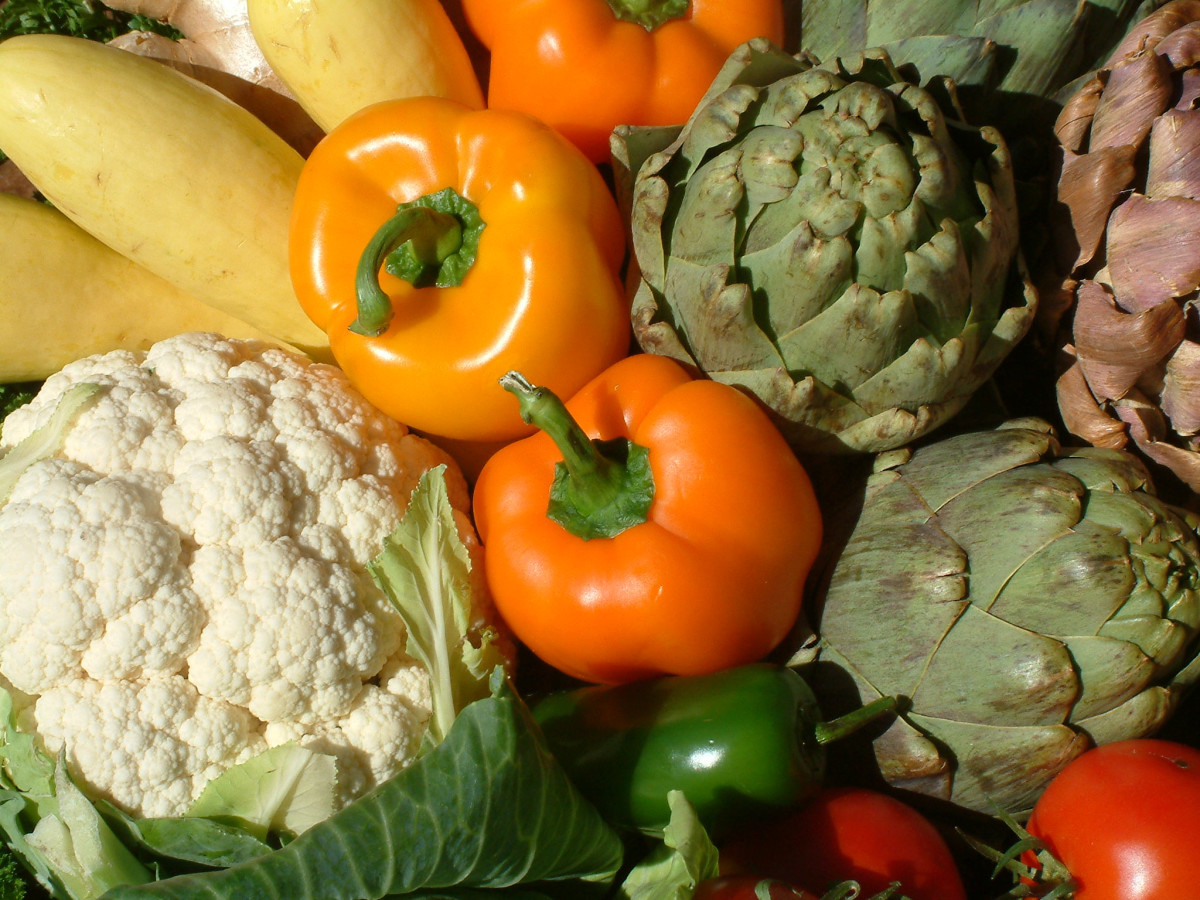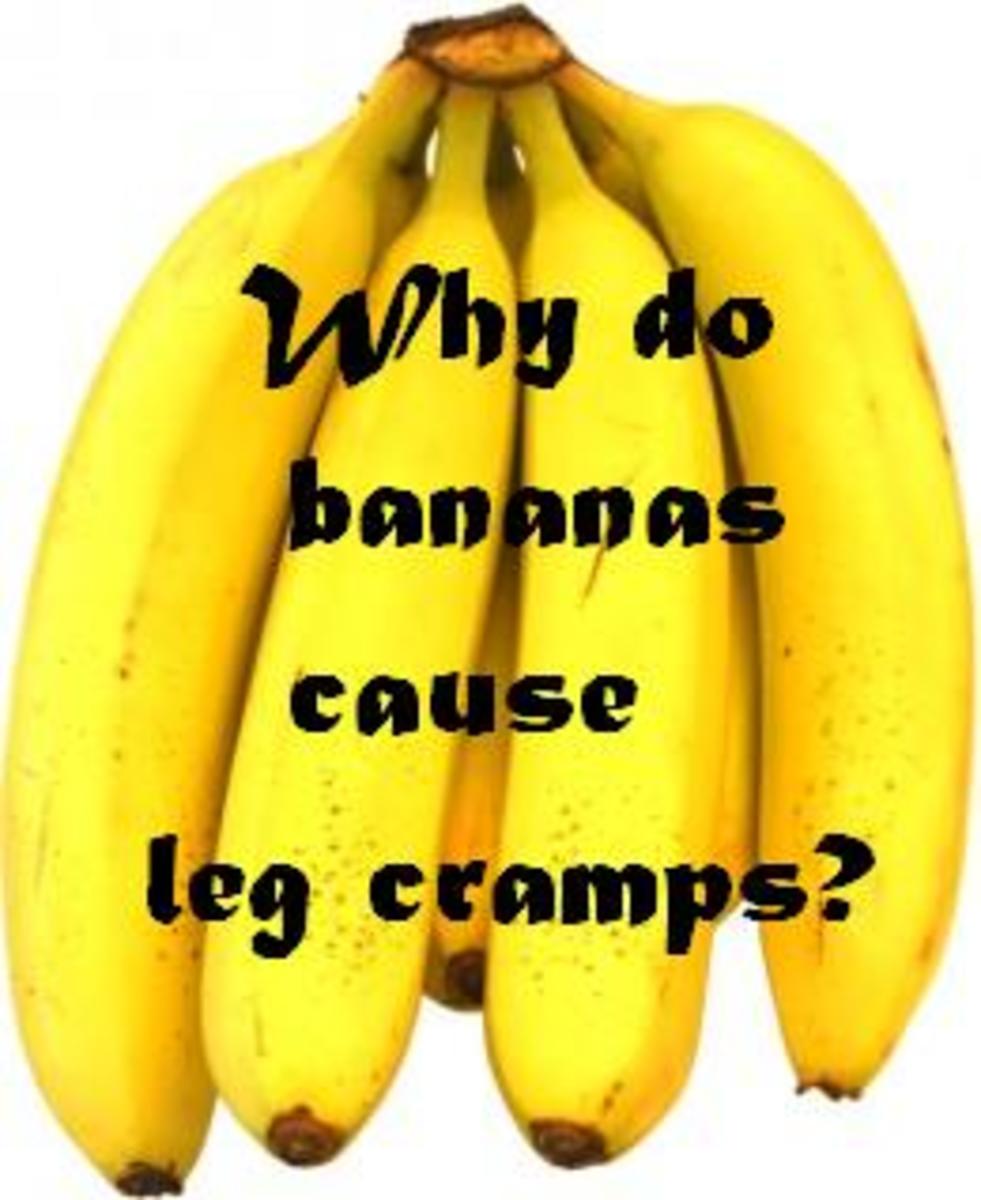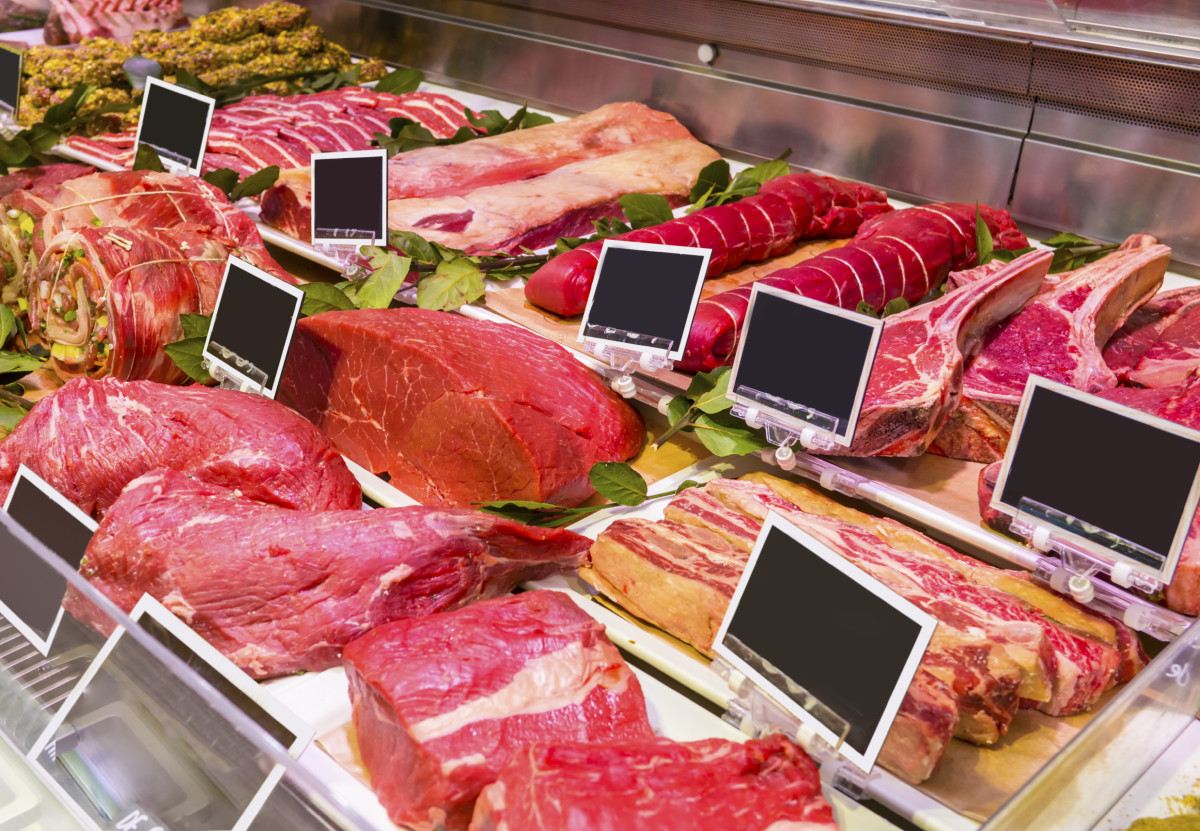Five Rumors about Vegetarians - Fact vs. Fiction
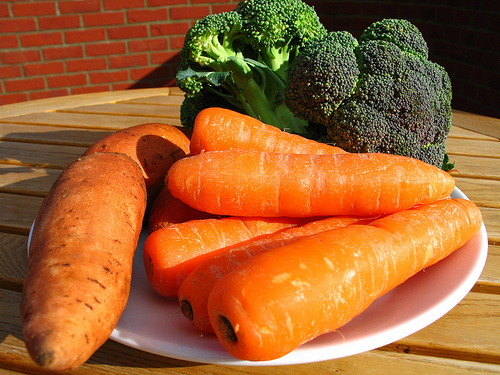
About my own switch to a Vegetarian Diet
In high school I had a very low opinion of vegetarianism. Most of the vegetarians that I met were more than a bit pushy about their stance on eating meat. In these days I loved animals. I loved everything about them, including how they taste. Even to this day I smell my roommate cooking chicken and compliment him on the savory aroma.
It was actually not until two and a half months ago that I finally decided to give vegetarianism a try. A vegetarian friend of mine who had nothing negative to say about my carnivorous habits inspired me: I was intrigued by her lack of condescension and realized that you don’t need to be an activist, or be obnoxious to be a vegetarian.
The first seven days as vegetarian were fairly easy and then I watched the documentary “Forks over Knives” which encouraged my vegetarian pursuits without making me feel guilty or making me want to puke by showing footage of slaughterhouses and other awful things. This documentary cut all the mudslinging and had only positive things to say. I highly recommend it. After watching this documentary, vegetarianism was a breeze.
I can honestly say that after two and a half months I don’t feel like I am missing anything at all by not eating meat (and that is a lot coming from a 20 year old young man!). My goal is to be vegetarian for six months and then if I want to I will feel free to eat small amounts of meat. My prime motivation from the start has been my own health, ethics and treatment of animals was only a secondary motivation.
When people catch wind that I am vegetarian they are surprised. Standing in front of them is a 6’2”, 200 lb athletic herbivore. Here are some questions they ask and my answers (some of which come from personal experience and some answers come from research that I have done for myself):

What about the protein?
This is the most frequent question I hear as a vegetarian, especially as one who is active in both cardio and weight training. I was intrigued about this myself at first and chose to look into the truth about vegetarians and protein. The cold hard facts are that vegetarians can be deficient in protein and it is easier for them to be than their carnivorous counterparts. This deficiency in protein, though, comes from eating habits that are unwise and unhealthy
This said, it is very easy for a vegetarian to eat more than enough protein in a day. There are many vegetables that are high in protein. Broccoli for instance has 3 grams for every 30 calories (I recommend a head of broccoli even to carnivores who are seeking to lose weight. It is a very filling and tasty snack!). Also, most vegetarians (unless they are vegan) still eat dairy products and eggs. I personally avoid dairy products and moderate my intake of eggs, but they are quite high in protein. Egg whites for instance have 3.6 grams of protein and are only 17 calories. This means that more than 14 of the 17 calories in an egg white come from protein.
Some high protein food sources I would recommend to herbivores (and carnivores alike) are broccoli, oatmeal, peanut butter, nuts, chickpeas (the main ingredient in hummus and falafel), TVP, Greek Yogurt, egg whites and sweet potatoes.
One final note about protein: This conversation often leads me to pose the question “How much protein do our bodies really need?” Today at the gym I heard a trainer throw out the number 1.1 grams of protein for every pound you weigh. That would mean I should to eat 220 grams of protein a day! I have looked into this and found that it is likely a myth, I will write more on this soon.
Do you fart more than you used to?
Every myth has its counterpart – the truth. Being a vegetarian has changed my farting habits. I, being a young guy, have always been relatively gassy (sorry mom!), but I have to admit that after making the change to vegetarianism I noticed that they smelled worse than ever.
That seemed to only be the case for the first couple weeks, but recently it has come back. I think, for myself, much of the excess flatulence comes from the consumption of dairy products, so I cannot blame vegetables entirely, but after doing a little research it seems that the high intake of fiber that is common to vegetarians can cause more flatulence.
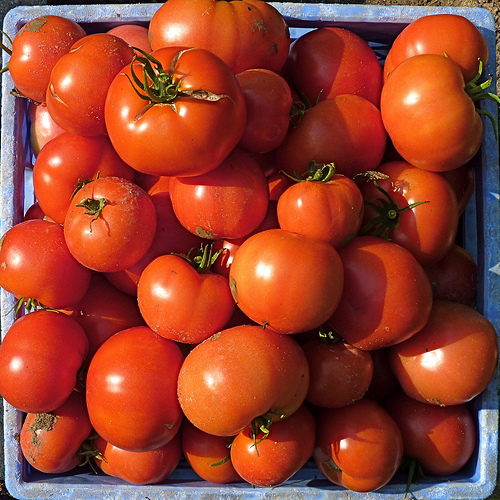
Is it hard to eat out as a vegetarian?
Yes, it is hard to eat fast food as a vegetarian. Other than choosing Burger Kings veggie burger or defecting to a side salad and French Fries, there is not much a vegetarian can do at a fast food joint. Honestly though, is that really a bad thing?
Regarding any other restaurant: No, it is not hard. It simply takes a little bit of planning ahead. There are many places with a vast number of vegetarian options in their menu and often these items are cheaper than their meat-laden counterparts. Some of my favorite types of restaurants to eat out at as a vegetarian are Indian, Mediterranean, Vietnamese, Mexican and Italian. These restaurants usually have many vegetarian options (certain Indian buffets are entirely vegetarian).
Vegetarians don’t get complete proteins right?
Honestly, I haven’t done a copious amount of research on this topic, but I have found many sources that confirm that if a vegetarian has a varied diet including legumes and a variety of greens, they will have no problem attaining the complete proteins their body needs.
What about Vitamin B12?
To this I say, touché, at least at first glance. I do agree that an overwhelming amount of research says this is a very important vitamin for our body and that it is not often easy to come by as a vegetarian. This being said, there are always vitamin B12 supplements at the store and there are many vegetarian foods that are fortified with B12.
For the ambitious vegetarian, there are some very good sources of vitamin B12 in nature. One of the most easily attainable sources is barley grass (which can be juiced or just consumed like wheat grass).
I will write more on the topic of vegetarianism soon. I hope to dispel certain myths and address issues that truly make vegetarianism a challenge. Because the truth is, it has to be a conscious decision and an individual has to be much more intentional about what they eat lest they walk around with a bag of Doritos all day long.
Thanks for reading!





